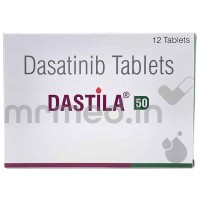Sosrane Inhaler contains active components such as Isoflurane. It is a volatile inhalation anesthetic drug used in the field of anesthesia and surgery. It belongs to a class of compounds known as halogenated ethers, which are characterized by their ability to induce and maintain general anesthesia. In some cases, emergency surgeries, such as trauma cases or surgeries to address life-threatening conditions, may require the rapid induction of anesthesia with it. It can be used for certain diagnostic and therapeutic procedures that require general anesthesia. While it is less commonly used during childbirth due to concerns about uterine relaxation, it may be used in some situations during cesarean sections when other anesthetics are not suitable. Before using it, a thorough assessment of the patient's health and individualized anesthesia plan is typically established to ensure safety and effectiveness during the procedure.
Patients with a known allergy or hypersensitivity to Isoflurane or other halogenated ethers should not receive it. The liver metabolizes it to a small extent, so patients with severe liver dysfunction should not take this medication. Patients with a personal or family history of malignant hyperthermia should also avoid it. Patients with severe respiratory disorders, such as advanced chronic obstructive pulmonary disease (COPD), may require careful consideration of its risks and benefits. Patients with unstable cardiovascular conditions, such as uncontrolled hypertension or severe arrhythmias, may require careful monitoring. It can be used in older adults when appropriate precautions are taken. Isoflurane is suitable for pediatric patients undergoing surgery, as it can be titrated to provide the appropriate level of anesthesia for children.
- General anesthesia
- Surgical procedures
- Emergency surgery
- Diagnostic and therapeutic procedures
- Pediatric surgery
- Veterinary medicine
Therapeutic Effects of Sosrane Inhaler
Pregnancy
Sosrane Inhaler is unsafe during pregnancy, especially during the first trimester, due to concerns about potential effects on the developing fetus.
Breast Feeding
If you need to take Isoflurane while breastfeeding, it's crucial to discuss the risks and benefits with your healthcare provider.
Lungs
Sosrane Inhaler is generally not associated with adverse effects on lung health. However, consult your healthcare provider if you have specific concerns or lung conditions.
Liver
Sosrane Inhaler is metabolized in the liver, so it should be used cautiously in patients with significant liver impairment. Discuss your liver condition with your healthcare provider before taking it.
Alcohol
It is generally not safe to take alcohol before surgery or any medical procedure involving Isoflurane.
Driving
Driving is unsafe immediately after receiving Sosrane Inhaler. The effects of this medication can impair your cognitive and motor functions, making it unsafe to operate a vehicle.
Serious
- Respiratory depression
- Cardiovascular effects
- Malignant hyperthermia
- Allergic reactions
- Liver and kidney function changes
- Neurological effects
Common
- Nausea and vomiting
- Headache
- Sore throat and cough
- Shivering
- Confusion or memory changes
Attention is given to proper patient positioning to prevent pressure ulcers and nerve damage. Infection control measures are rigorously observed to minimize the risk of surgical site infections. Adequate fluid management and intravenous support are administered to maintain hydration and circulation.
The dosage of Sosrane Inhaler is carefully titrated based on the patient's age, weight, medical condition, and the type of surgery. Providers continuously adjust the concentration to maintain the desired level of anesthesia.
Sosrane Inhaler can impact heart rate and blood pressure. It may cause hypotension (low blood pressure) or arrhythmias (irregular heart rhythms). Healthcare providers closely monitor these parameters and intervene as needed.
The recovery period varies from person to person, but patients usually regain consciousness shortly after the procedure. Some individuals may experience mild postoperative effects, such as nausea, shivering, or confusion, typically transient and managed by healthcare providers.
Fasting guidelines typically recommend no food for several hours before surgery and clear liquids up to a specified time before the procedure. Following these guidelines is crucial to reduce the risk of aspiration during anaesthesia.
While Sosrane Inhaler is generally considered safe, some individuals may experience temporary postoperative cognitive dysfunction (POCD), which involves short-term memory and cognitive impairment. The exact cause of POCD is not well understood.
Serious side effects can include respiratory depression, cardiovascular effects, malignant hyperthermia, allergic reactions, and neurological effects. These are closely monitored and managed by healthcare providers.
Molecule name: Isoflurane | Therapeutic class: General inhalation anesthetic |
Pharmacological class: Halogenated volatile anesthetic | Indications: 1. General anesthesia 2. Surgical procedures 3.Emergency surgery 4. Diagnostic and therapeutic procedures 5. Pediatric surgery 6. Veterinary medicine |







